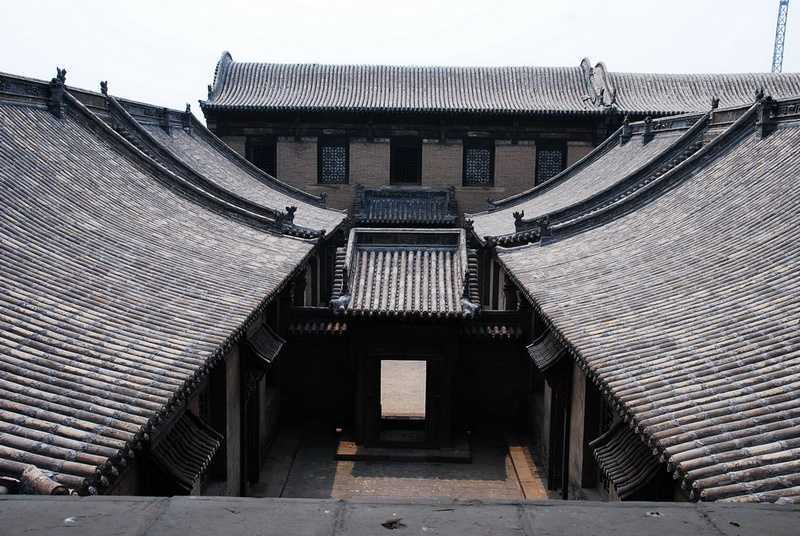
I did not expect to see such an ancient grand mansion in remote northern China when the country road leads me to Chang Family Manor(常家大院) in Yuci(榆次) county, Shanxi province.
Standing in front of the 10-meter-high gate, I would associate the wall, moat and gate tower with a well-off city, rather than a private estate.
The family's ancestor, Chang Zhonglin, fled to neighboring Yuci, because of famine in his home in Taigu county, and worked as a shepherd in late Ming Dynasty (1368-1644). His son ventured into tea business and prospered in early Qing Dynasty (1644-1911), and started building the mansion, which gradually expanded to 4,000 houses across 60 hectares.
The 1,000-house manor today is only one fourth of its original size. The rest were either destroyed in wars or demolished during the "cultural revolution" (1966-76).
Having seen so many shoddy palaces and temples, I'm intrigued immediately by the dilapidation and originality demonstrated by the manor with the key colors of gray, earth tone and black.
There is a slab-stone-covered square of about the size of six basketball courts in the mansion, which connects a 600-meter-long and 20-meter-wide straight flagstone road, called Back Street.
The road used to be one of the two main passages in the center of the manor. Now only half of it is reserved with the buildings located on its north.
To the north of the square is also an ancestral temple of the Chang family. All the important names in the family's history are carved on wooden tablets and worshipped in the hall. Their stories are recorded in the family files kept in the temple.
In its heyday, the Chang family controlled 40 percent of Sino-Russia tea trade over about 20 years in mid-Qing Dynasty. They planted tea in Wuyi Mountain in Fujian province and transported the tea to Kyakhta in Siberia through Zhangjiakou in Hebei province and Mongolian Plateau.
West of the temple is Chang Family Academy, made up of classrooms, a library and lecture halls.
The three-story library is the most magnificent construction, demonstrating the highest artistic values in the manor. The handwriting of hundreds of famous ancient calligraphers and 44 emperors is carved on stone tablets embedded in walls along the corridors.
A small garden livens up the center of the academy's yard.
 |
| Touched | Sympathetic | Bored | Angry | Amused | Sad | Happy | No comment |
Rhythm Media Group is a multi-media company, operating a US-based Chinese daily newspaper, The China Press, and the paper's website - uschinapress.com (which has mobile-app version), as well as a Beijing-based English website Sino-US.com. The group boasts 15 branch offices across the US, and a number of cultural centers focusing on culture-related business in the North America, Chinese mainland, Hong Kong and Taiwan.Launched in September 2012, the Sino-US.com is designed to serve as a bridge between China and the US, and to keep its readership inside or outside China better informed by providing news and insights on China's current affairs, culture, life, business, people and sports.
|
|